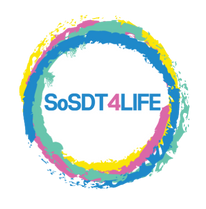In recent years, Traditional Chinese Medicine (TCM) has garnered significant attention in the field of oncology, providing alternative and complementary treatments for cancer patients. TCM is incorporated into SoSDT4Life’s holistic approach, which combines traditional medicine with cutting-edge techniques to improve patient care. This blog explores the science behind TCM and its application in cancer treatment.
The Philosophy of Traditional Chinese Medicine
Traditional Chinese Medicine is rooted in a holistic understanding of health, emphasizing balance and harmony within the body. Central to TCM are the concepts of Qi (vital energy), Yin and Yang (the dual forces of nature), and the Five Elements (Wood, Fire, Earth, Metal, and Water). According to TCM principles, disease arises when there is an imbalance or disruption in the flow of Qi.
Key Components of TCM in Cancer Treatment
- Herbal Medicine: Chinese herbal medicine uses plant-based remedies to restore balance and strengthen the body’s resistance to disease. Herbs are often combined into formulas tailored to individual patients’ needs. For cancer, herbs are selected for their potential to inhibit tumor growth, boost immunity, and alleviate the side effects of conventional treatments.
- Acupuncture: This practice involves inserting thin needles into specific points on the body to regulate Qi flow. Acupuncture can enhance patients’ quality of life by helping to manage cancer-related symptoms like pain, exhaustion, nausea, and anxiety.
- Dietary Therapy: TCM dietary therapy recommends foods that balance the body’s energies. For cancer patients, dietary adjustments can support overall health, enhance immunity, and mitigate treatment side effects.
- Qi Gong and Tai Chi: These mind-body practices combine gentle physical movements, breathing techniques, and meditation to enhance physical and mental health. They can improve strength, flexibility, and emotional well-being in cancer patients.
The Science Behind TCM
While TCM has been practiced for thousands of years, modern scientific research is beginning to validate its efficacy in cancer treatment. Several studies have shown that TCM can complement conventional cancer therapies, potentially improving outcomes and reducing adverse effects.
- Herbal Medicine: Research indicates that certain Chinese herbs possess anti-cancer properties. For instance, compounds from the herb Artemisia annua (used in TCM) have shown promise in inhibiting the growth of cancer cells. Additionally, herbs like Astragalus and Ganoderma are noted for their immune-boosting effects.
- Acupuncture: Clinical trials have demonstrated that acupuncture can effectively reduce chemotherapy-induced nausea and vomiting, manage cancer pain, and improve overall well-being. It is believed that endorphin release and nervous system modification are involved in the mechanism.
- Synergistic Effects: TCM’s holistic approach often works synergistically with conventional treatments. For example, herbal formulas can enhance the efficacy of chemotherapy and radiation therapy while protecting healthy cells and reducing toxicity.
TCM at SoSDT 4 Life
At SoSDT 4 Life, our approach to cancer treatment is comprehensive and patient-centered. Our Multi-Disciplinary Treatment (MDT) team includes experts in TCM who collaborate with oncologists, surgeons, radiologists, and other specialists to create personalized treatment plans. This integration ensures that patients receive the best of both worlds: cutting-edge medical care and the holistic benefits of TCM.
MDT Joint Diagnose & Treatment: The Most Optimal Treatment of Cancers
Our MDT approach is designed to provide a one-stop solution for cancer treatment. Instead of navigating multiple departments and seeing different doctors, patients at SoSDT 4 Life benefit from a coordinated team effort. The MDT team reviews each patient’s case thoroughly and crafts a comprehensive treatment plan, which is then implemented seamlessly by our core team.
Advantages of MDT in Cancer Treatment
- Efficiency: The MDT model minimizes delays by consolidating consultations and decision-making processes. Patients receive timely diagnoses and treatment plans, which is crucial for effective cancer care.
- Comprehensive Care: By integrating various specialties, MDT ensures that all aspects of a patient’s health are considered. This holistic view leads to more effective and personalized treatment strategies.
- Patient-Centered Approach: The MDT process prioritizes the patient’s needs, preferences, and overall well-being. This approach fosters a supportive and reassuring environment, enhancing the patient’s experience and outcomes.
The integration of Traditional Chinese Medicine into cancer treatment at SoSDT 4 Life represents a harmonious blend of ancient wisdom and modern science. By ensuring that patients receive thorough, effective, and individualized care, our MDT approach maximizes their chances of successful outcomes. As we continue to embrace and innovate in holistic cancer therapies, our commitment remains steadfast: to provide the highest standard of care and support for our patients on their journey to health and healing.
For more information on how TCM can complement your cancer treatment, or to schedule a consultation, please contact us directly.

Leave A Comment
You must be logged in to post a comment.